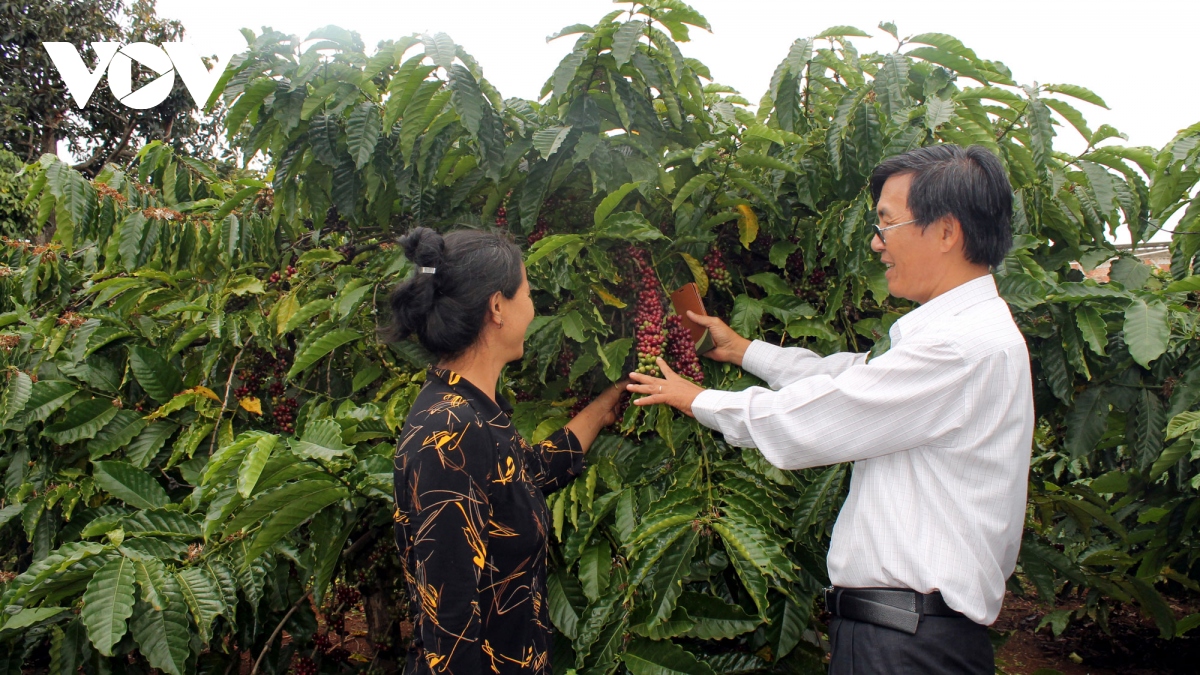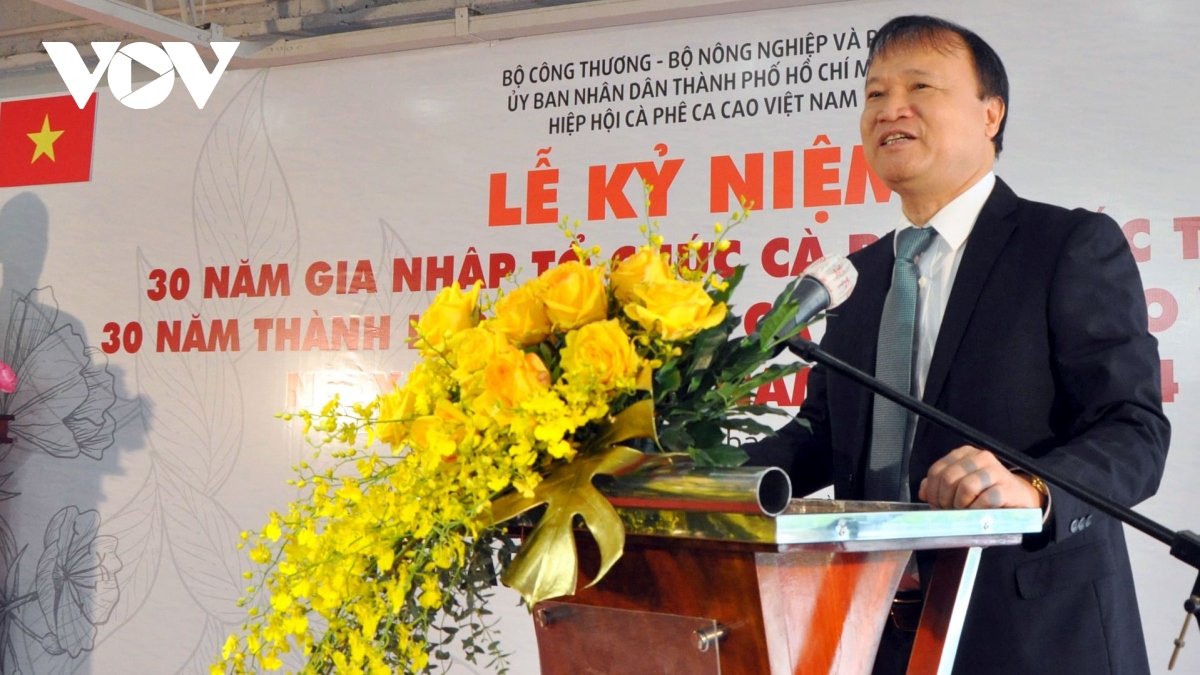Source: vov.vn
“In order to increase the value and reach the export target of 6 billion USD by 2030, it is necessary to develop Vietnam’s coffee industry in the direction of the value chain, strengthen the connection between production and trade, and develop export markets. , product development associated with brand building”.
Information emphasized by Deputy Minister of Industry and Trade Do Thang Hai during the 4th Vietnam Coffee Day Celebration 2020; 30 years of joining the International Coffee Organization (ICO) and established the Vietnam Coffee and Cocoa Association on January 15.

Coffee has been grown in Vietnam since the end of the 19th century, after the unification of the country, with the policy of the Party and the State on promoting agricultural development, coffee trees have been selected to grow on basalt red soil in many areas. Central Highlands and mountainous provinces.
According to Mr. Luong Van Tu, Chairman of the Vietnam Coffee and Cocoa Association (VICOFA), 30 years ago, VICOFA was established under the Decision of the Minister of Foreign Economic Affairs (now the Ministry of Industry and Trade). 1 year later, also at the proposal of the Ministry of Industry and Trade, the Association joined and became an active member of the International Coffee Organization (ICO).
Through 3 decades of construction and development, the Vietnam Coffee – Cocoa Association has affirmed its important role in gathering and representing enterprises, organizations and individuals producing, processing and exporting. , research and training, providing services for the coffee and cocoa industries nationwide, supporting the growth of Vietnam’s coffee industry, contributing to the country’s socio-economic development.
Deputy Minister of Industry and Trade Do Thang Hai said that in recent years, coffee has been one of the main export agricultural products, accounting for a significant proportion of the total export turnover of Vietnamese agricultural products. This is also an important crop of people in the Central Highlands when it contributes about 30% of the GDP of this region.
In recent years, trade promotion activities to develop the market for coffee products have been focused and promoted. Within the framework of the National Trade Promotion Program, the Ministry of Industry and Trade has coordinated with localities with strengths in coffee products, organizations and enterprises to implement trade promotion activities to support the coffee industry.
Specifically, such as Coffee Festival, Vietnam Coffee Day Program, Conference to welcome international importers to trade transactions, organize for coffee enterprises to participate in specialized agricultural fairs and exhibitions. products, food at home and abroad…
“Through these promotional activities, Vietnam wants consumers around the world not only to enjoy high-quality processed coffee products, but also to experience regional cultural values. unique region of Vietnam”, affirmed Deputy Minister of Industry and Trade.

Currently, Vietnam’s coffee export output is on average 1.5 – 1.8 million tons/year, export turnover has always grown over the years to reach over 3 billion USD. With the second position in export value, Vietnamese coffee has been present in 80 countries and territories around the world, concentrating mainly in major markets such as Germany, USA, Spain, Italy, Belgium, UK and emerging markets such as China, Russia, Korea, Japan, Taiwan, Philippines, Thailand…
The domestic coffee market thrives with the presence of about 300,000 coffee shops across the country, of which many Vietnamese coffee retail brands are preferred by consumers.
Vietnam is one of the major coffee producing and exporting countries in the world, but the export value of coffee is not commensurate with its potential. In order to increase the value and reach the export target of 6 billion USD by 2030, Deputy Minister Do Thang Hai said that it is necessary to develop Vietnam’s coffee industry in the direction of the value chain, strengthening the connection between production and trade. , developing export markets, developing products associated with brand building, towards building a sustainable coffee value chain./.
